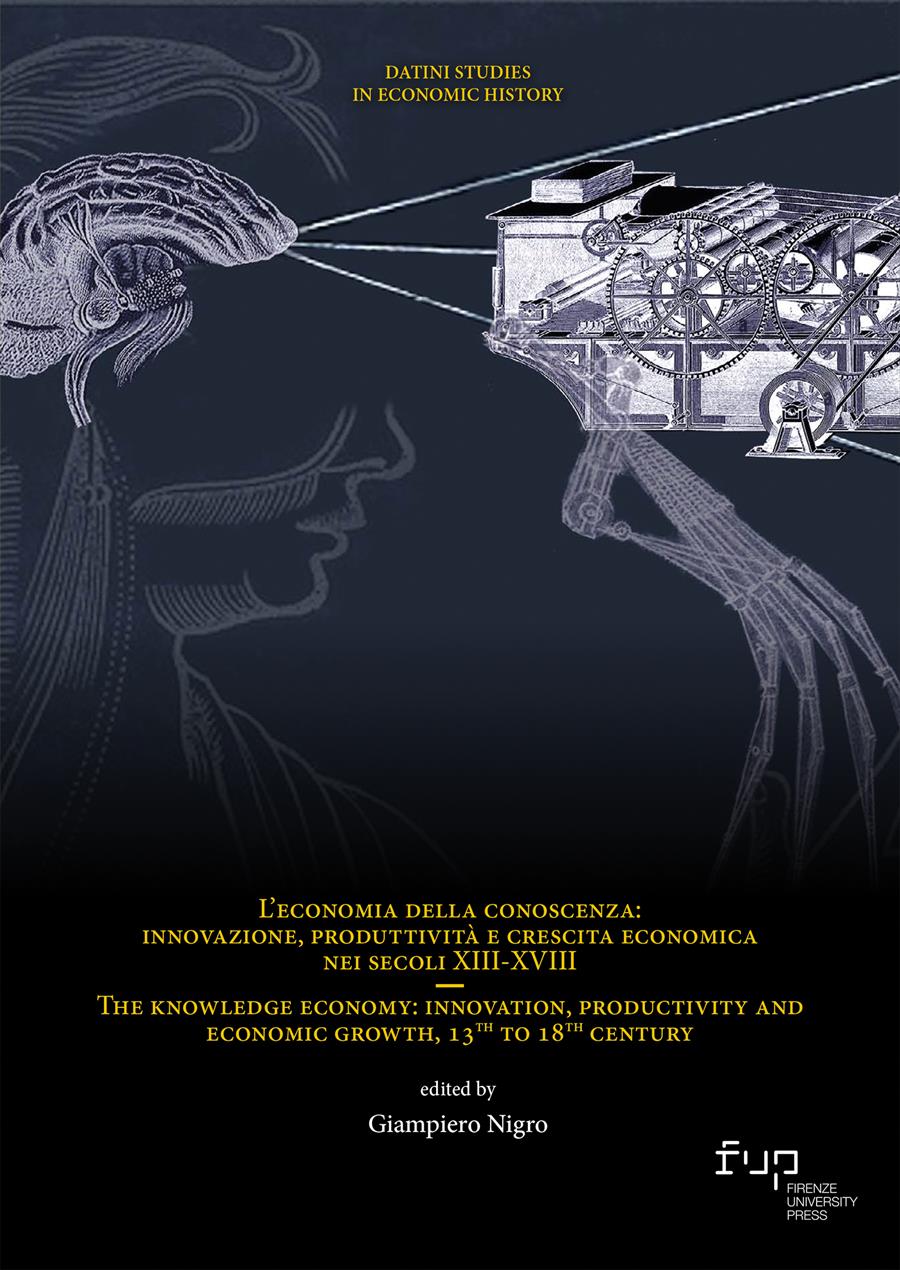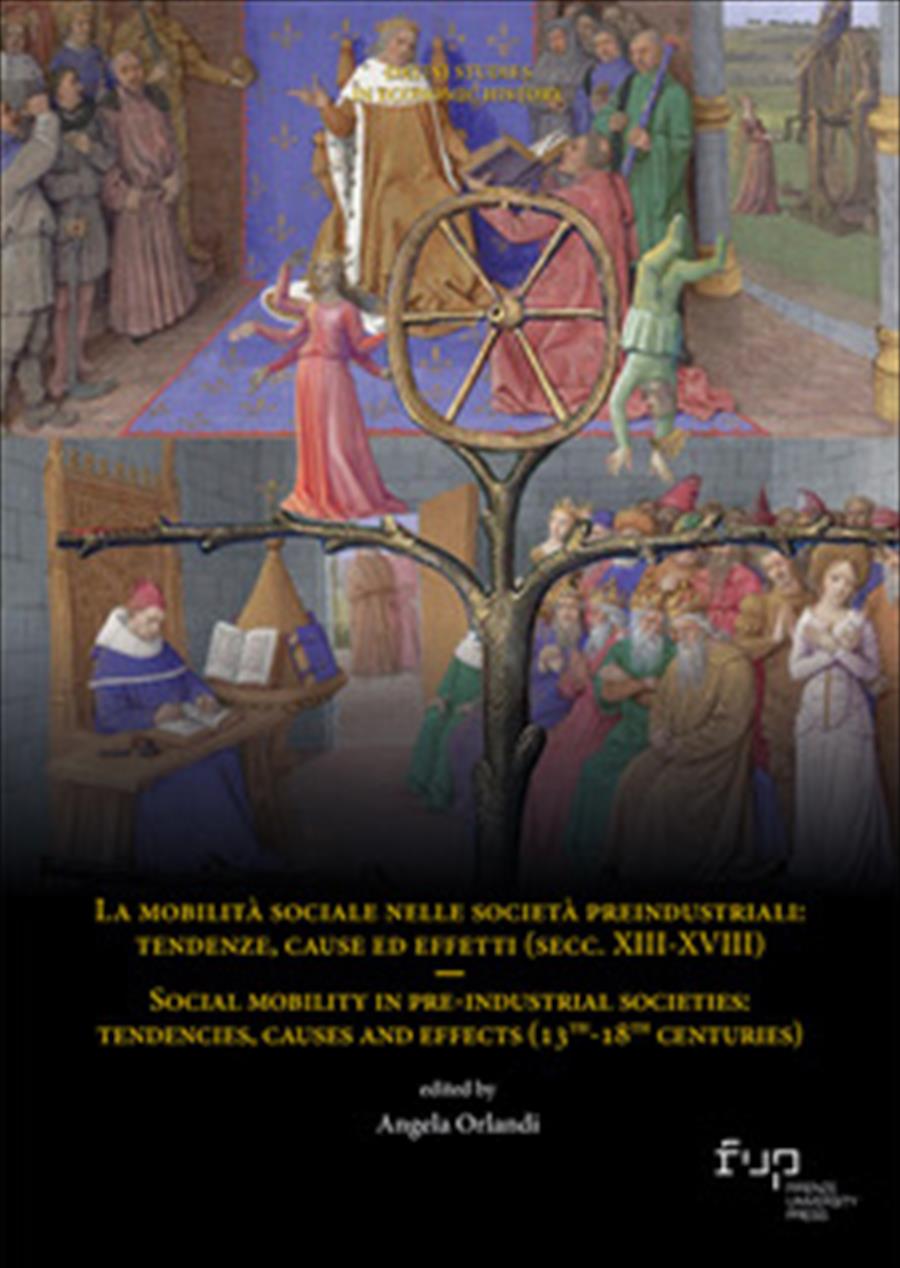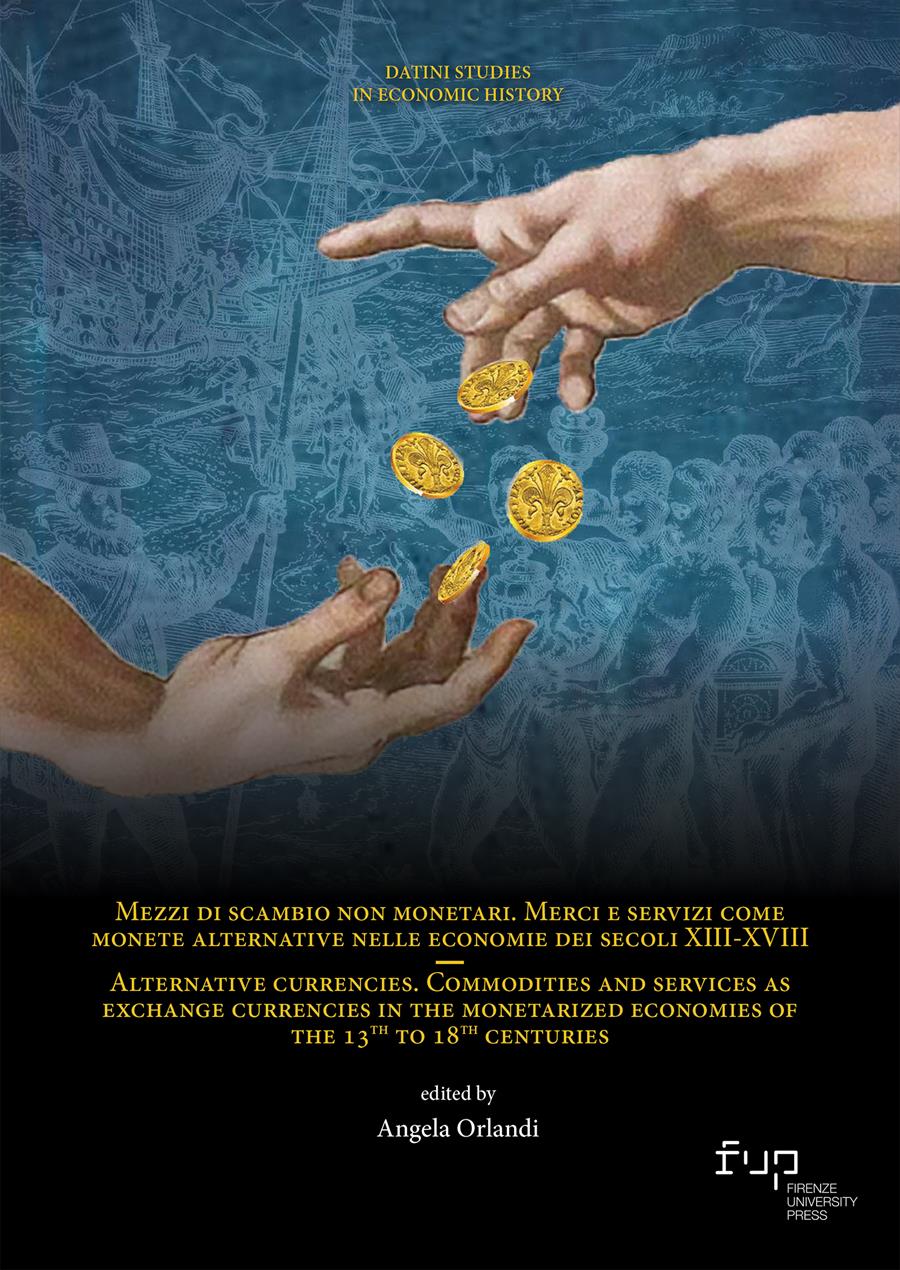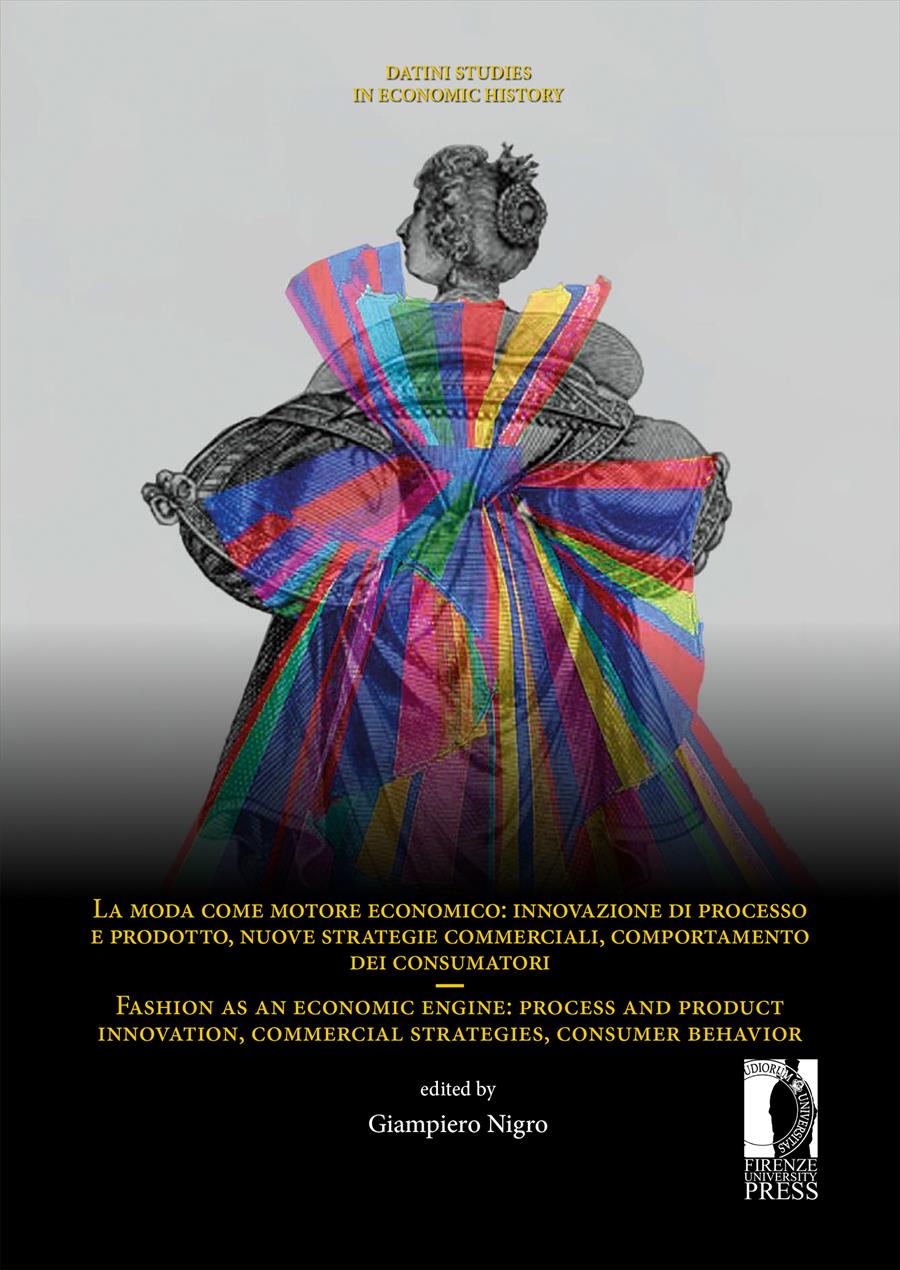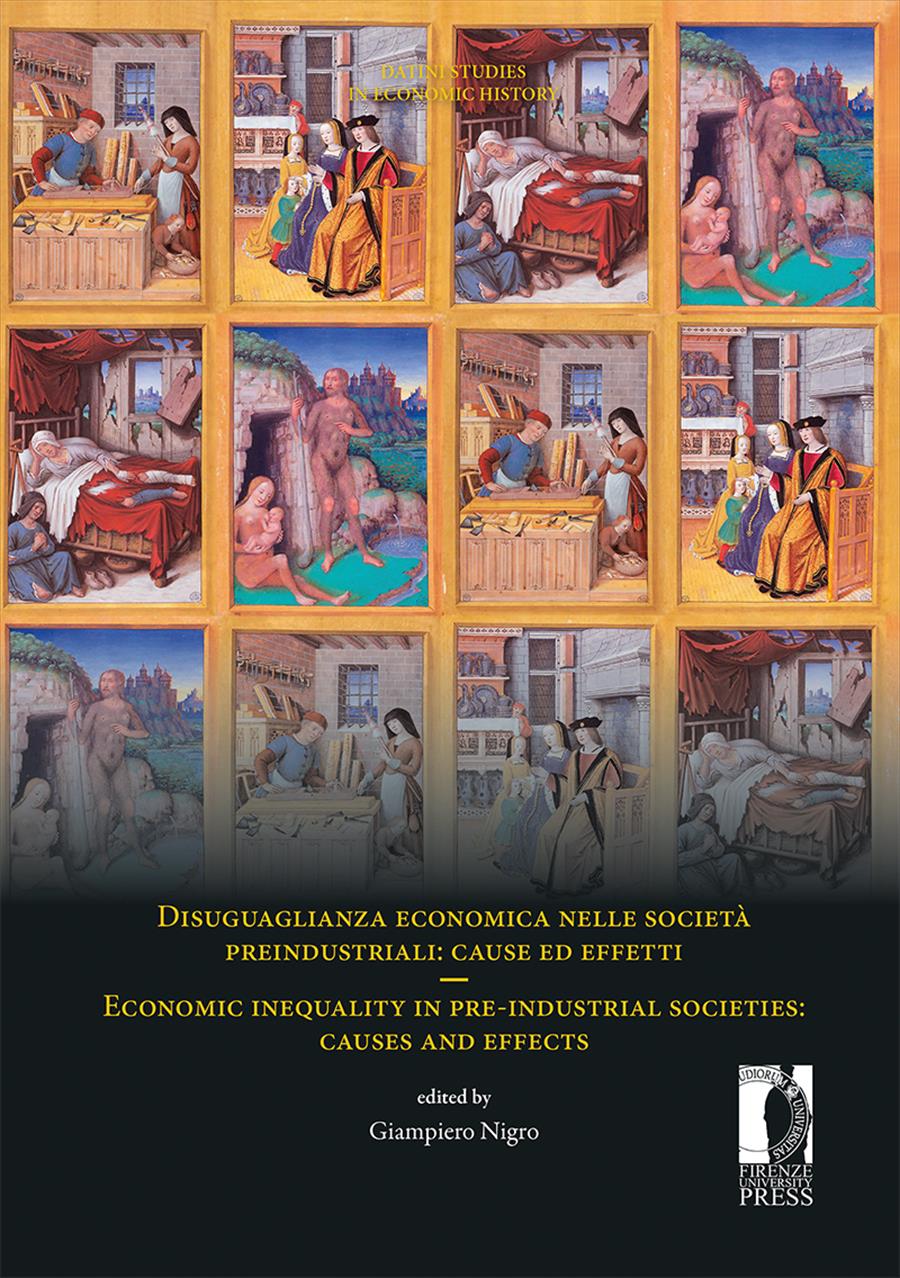L’economia della conoscenza: innovazione, produttività e crescita economica nei secoli XIII-XVIII / The knowledge economy: innovation, productivity and economic growth, 13th to 18th century
- Edited by:
- Giampiero Nigro,
The studies presented here analyze the relationship between the knowledge economy and innovations, productivity, and economic growth in the premodern period (13th-18th centuries) by considering the following questions: how was “useful knowledge” transmitted between individuals, across space, and across generations? How could commercial and industrial productivity have been associated with the expansion of such knowledge? When and where was useful knowledge concentrated in such a way that a relatively large number of innovations and inventions could cause revolutionary breakthroughs in particular sectors of the economy?
- Keywords:
- Knowledge economy,
- useful knowledge,
- middle ages,
- modern age,
- economic growth,
- DOI: 10.36253/979-12-215-0092-9
- Series: Datini Studies in Economic History
- Scientific Board: Fondazione Istituto Internazionale di Storia Economica «F. Datini»
- Language: English, italian
- Subjects: Economic History
University of Florence, Italy - ORCID: 0000-0002-1008-1153
pp.5-32
LA CONOSCENZA UTILE E LA SUA DIFFUSIONE / ‘USEFUL KNOWLEDGE’ AND ITS DISSEMINATION
Julia Bruch
Transmission of useful knowledge in texts written by craftsmen. Two case studies from the Holy Roman Empire- CC BY 4.0 |
- © Author(s)
-

pp.35-58
Raffaele Danna
The spread of Hindu-Arabic numerals among practitioners in Italy and England (13th-16th c.): two moments of a European innovation cycle?- CC BY 4.0 |
- © Author(s)
-

pp.59-87
Seiji Horii
Promotion of high-quality textiles by prize competitions during the Enlightenment in Saxony. From raw material to finished product manufacturing- CC BY 4.0 |
- © Author(s)
-

pp.89-114
Heinrich Lang
«Li vostri che tenghono li libri non sanno tenere tanti chonnti». Useful knowledge and accounting as seen through the accountant’s lenses and the logic of capitalism- CC BY 4.0 |
- © Author(s)
-

pp.115-135
Tanja Skambraks
Tally sticks as media of knowledge in the contexts of medieval economic and administrative histor- CC BY 4.0 |
- © Author(s)
-

pp.137-158
Carlos Fernando Teixeira Alves
Knowledge, economy, and university in the south of Europe at the end of the eighteenth century. The case of Salamanca and Coimbra- CC BY 4.0 |
- © Author(s)
-

pp.159-175
Maarten Prak, Patrick Wallis
Transferring useful knowledge. Quality mechanisms in European apprenticeship- CC BY 4.0 |
- © Author(s)
-

pp.177-192
INNOVAZIONI NELLA TECNOLOGIA, NELLA PRODUZIONE E NEL COMMERCIO / INNOVATIONS IN TECHNOLOGY, PRODUCTION, AND COMMERCE
Fabrizio Antonio Ansani
Le conseguenze economiche dell’innovazione bellica. La produzione di «artiglierie alla francese» a Firenze tra Quattro e Cinquecento- CC BY 4.0 |
- © Author(s)
-

pp.195-208
Markus A. Denzel
Bookkeeping as a ‘key technology’ of pre-modern commerce. Its relevance for the eco-nomic development in Europe- CC BY 4.0 |
- © Author(s)
-

pp.209-235
Måns Jansson, Göran Rydén
The œconomia of iron and steel: Material transformations, manual skills, and technical improvement in early modern Sweden- CC BY 4.0 |
- © Author(s)
-

pp.237-262
Nicholas R. Amor
The origins of the putting-out or domestic system of industrial production in England- CC BY 4.0 |
- © Author(s)
-

pp.263-285
Joran Proot
The economic revolution in book design that went unnoticed. The case of the Southern Netherlands, 1473–c. 1550- CC BY 4.0 |
- © Author(s)
-

pp.287-314
Andrea Ottone
Market assessment and risk prediction: resources and know-how of a seventeenth-century bookseller of Venice coping with competition- CC BY 4.0 |
- © Author(s)
-

pp.315-330
PRODUTTIVITÀ E CRESCITA ECONOMICA / PRODUCTIVITY AND ECONOMIC GROWTH
Didier Boisseuil
La production d’alun en Occident: l’essor d’une industrie nouvelle à la fin du XVe siècle- CC BY 4.0 |
- © Author(s)
-

pp.333-351
Sandra de la Torre Gonzalo
Management and governance of the kingdom’s finances. Financial literacy as useful knowledge in late-medieval Aragon (1365-1515)- CC BY 4.0 |
- © Author(s)
-

pp.352-372
Richard W. Unger
Ships, shipping, technological change and global economic growth, 1400-1800- CC BY 4.0 |
- © Author(s)
-

pp.373-393
Yulia Altukhova-Nys
Productivity? – Yes, but subject to sustainability! An evidence of (re)emergence of accounting for sustainability from the French agricultural authors from the XVII to the beginning of the XIX centuries- CC BY 4.0 |
- © Author(s)
-

pp.395-416
TAVOLA ROTONDA / ROUND TABLE
Carlos Laliena Corbera
Useful knowledge, technological innovation and economic development in the European ceramic industries, 14th-18th centuries- CC BY 4.0 |
- © Author(s)
-

pp.419-429
Markus A. Denzel
Round Table comment: From «useful knowledge» to a «culture of growth»- CC BY 4.0 |
- © Author(s)
-

pp.431-434
- Publication Year: 2023
- Pages: 456
- eISBN: 979-12-215-0092-9
- Content License: CC BY 4.0
- © 2023 Author(s)
- Publication Year: 2023
- Pages: 456
- ISBN: 979-12-215-0091-2
- Content License: CC BY 4.0
- © 2023 Author(s)
Bibliographic Information
Book Title
L’economia della conoscenza: innovazione, produttività e crescita economica nei secoli XIII-XVIII / The knowledge economy: innovation, productivity and economic growth, 13th to 18th century
Editors
Giampiero Nigro
Peer Reviewed
Number of Pages
456
Publication Year
2023
Copyright Information
© 2023 Author(s)
Content License
Metadata License
Publisher Name
Firenze University Press
DOI
10.36253/979-12-215-0092-9
ISBN Print
979-12-215-0091-2
eISBN (pdf)
979-12-215-0092-9
Series Title
Datini Studies in Economic History
Series ISSN
2975-1241
Series E-ISSN
2975-1195
